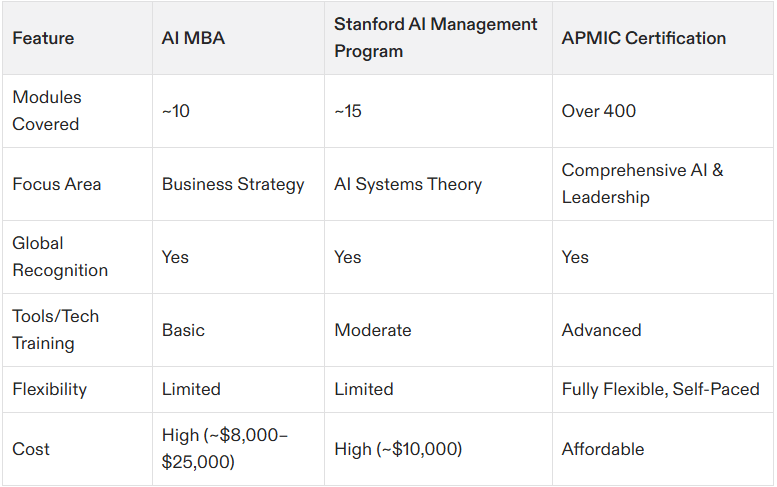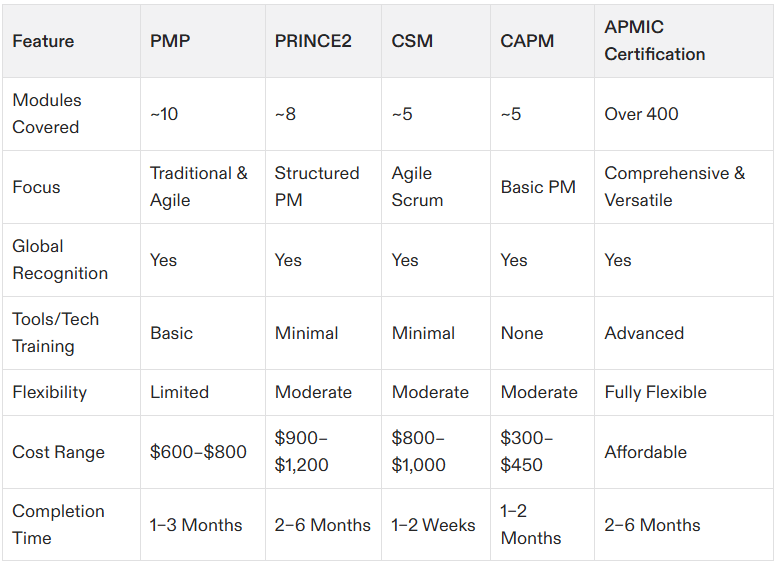Table of Contents
- What is Project Management Certification?
- Why is Project Management Certification Important?
- Real-Life Benefits: Industry Examples
- Top Project Management Certifications in 2025
- How to Get Started with Project Management Certification: A Step-by-Step Guide for 2025
- Where Can I Learn More About Project Management Certification?
- Final Thoughts: Your Journey Starts Here
- FAQs
Sometimes, it can feel like managing a project is like juggling flaming swords while riding a unicycle. Welcome to the world of project management! But don’t worry–there’s a way to turn chaos into order: Project Management Certification. No matter what level of experience you have, these certifications are your key to learning how to plan, execute and deliver projects like a pro. Come, let’s explore What is Project Management Certification and why it is your ticket to career success.
What is Project Management Certification?
Project Management Certification is a professional certification that guarantees your ability to manage projects effectively. It’s not just a fancy title; it’s your proof that you can handle large-scale projects across various industries. Such certifications are obtained after attending relatively strict training courses and undergoing examinations for the certification of the level of knowledge of the principles, methodologies, and practices of project management.
It’s like getting your superhero cape in the project management world, isn’t it? Risk management, Agile frameworks, and team coordination are some areas that these certifications help you learn to deal with any challenge effectively.
Why is Project Management Certification Important?
Project Management Certification is not just a professional milestone; it’s a transformative step that can redefine your career. In today’s competitive job market, where employers prioritize skilled professionals who can deliver results, earning a certification gives you a significant edge. Here’s an expanded look at why obtaining a project management certification is critical in 2025 and beyond:
1. Global Validation of Expertise
Certifications like the PMP (Project Management Professional) are globally recognized as the gold standard in project management. They validate your ability to apply industry-wide best practices, methodologies, and tools effectively.
Why it Matters: Employers worldwide trust certifications like PMP to ensure they’re hiring someone equipped to handle complex projects with precision. This global recognition opens doors to opportunities in multinational corporations and international markets.
Data Insight: According to PMI’s 13th edition Earning Power: Project Management Salary Survey, PMP-certified professionals earn 33% more than non-certified peers globally.
For those looking to get the Top Project Management Certification, consider exploring this Top Project Management Certification to further enhance your professional standing
2. Enhanced Career Opportunities
Certified project managers are in high demand across industries such as IT, healthcare, construction, finance, and manufacturing. These certifications demonstrate that you’re not just qualified but also committed to professional growth.
Industry Growth: PMI research predicts that project management-oriented roles will grow by 33%, creating nearly 22 million new jobs by 2027.
Competitive Edge: Many job postings explicitly list certifications like PMP as either required or highly preferred, giving certified professionals a clear advantage.
3. Higher Earning Potential
One of the most compelling reasons to pursue certification is the financial benefit. Certified project managers consistently earn higher salaries compared to their non-certified counterparts.
Earning Statistics: The median salary for PMP-certified professionals in the United States is $120,000, with certified individuals earning up to 20%-33% more globally.
Freelance Opportunities: Even freelance project managers benefit from certifications, as they can charge premium rates for their services based on proven expertise.
4. Tailored Skills for Specific Industries
While general certifications like PMP provide a strong foundation, specialized certifications such as APMIC or PRINCE2 cater to niche industries and methodologies.
Specialized Knowledge: Certifications like APMIC focus on Agile transformation, healthcare compliance, and IT project management, making them ideal for professionals targeting specific sectors.
Industry-Specific Benefits:
IT: Enhanced productivity and risk management.
Healthcare: Streamlined processes and regulatory compliance.
Construction: Better coordination and cost control.
Finance: Robust risk mitigation and strategic planning.
5. Confidence and Credibility
Earning a certification isn’t just about acquiring knowledge—it’s about demonstrating your commitment to excellence.
Professional Credibility: Certifications act as a badge of honor, showcasing your ability to lead projects successfully.
Confidence Booster: The rigorous training and exam preparation give you the confidence to tackle even the most complex projects.
6. Expanded Professional Network
When you earn certifications like PMP, you become part of a global community of certified professionals.
Networking Opportunities: PMI alone has over 700,000 members worldwide and 300+ local chapters. This network offers invaluable resources such as mentorship programs, job boards, and industry events.
Collaboration Benefits: Being part of a professional network allows you to share insights, stay updated on trends, and collaborate on innovative solutions.
7. Staying Relevant in a Changing Job Market
The world of project management is constantly evolving with new methodologies like Agile, Scrum, and hybrid approaches gaining popularity.
Adaptability: Certifications ensure you stay updated with the latest tools and techniques.
Future-Proofing Your Career: As organizations increasingly adopt Agile and hybrid models, certifications that cover these methodologies (e.g., APMIC) position you as an adaptable leader.
8. Organizational Impact
Certified project managers don’t just benefit themselves—they bring value to their organizations by improving efficiency and reducing risks.
Improved Success Rates: Organizations with certified project managers report higher success rates in delivering projects on time and within budget.
Standardization of Processes: Certifications promote the use of standardized frameworks like PMBOK® Guide or PRINCE2 methodologies.
Real-Life Benefits: Industry Examples
Here’s how certifications make an impact across industries:
Top Project Management Certifications in 2025
Here’s a breakdown of the most prominent certifications:
How to Get Started with Project Management Certification: A Step-by-Step Guide for 2025
Embarking on your journey to earn a Project Management Certification is a transformative step that can significantly elevate your career. Whether you’re aiming for a globally recognized certification like PMP (Project Management Professional) or a specialized program like APMIC, the process requires careful planning and commitment. Here’s an in-depth guide to help you get started and achieve your certification goals.
1. Identify Your Career Goals
The first step is to define your objectives. Ask yourself:
Are you looking for a generalist certification like PMP, which provides a broad foundation in project management?
Or do you need a specialized certification like APMIC, tailored to specific industries such as IT, healthcare, or Agile methodologies?
Why This Matters:
Your career goals will determine the type of certification that aligns with your aspirations. For example:
PMP: Ideal for professionals who want to manage diverse projects across industries.
CAPM (Certified Associate in Project Management): Perfect for beginners entering the field.
APMIC: Best for those seeking niche expertise in regulated or technology-driven sectors.
Take time to research the certifications available and match them with your desired career trajectory.
If you're wondering is Project Management Certification worth it, this guide can provide you with more insights to make the best decision for your future.
2. Meet the Prerequisites
Most certifications have specific eligibility criteria based on education and work experience. Understanding these requirements is crucial before applying. Here’s a breakdown of common prerequisites:
For PMP Certification:
Educational Background:
Bachelor’s degree or global equivalent: Requires 36 months of project management experience within the last 8 years.
High school diploma or associate degree: Requires 60 months of project management experience within the last 8 years.
Project Management Education:
Complete 35 hours of formal project management training (or hold a CAPM certification as an alternative).
For CAPM Certification:
No prior project management experience required.
High school diploma or global equivalent.
Complete at least 23 hours of formal project management training.
For Specialized Certifications (e.g., APMIC):
Requirements vary but often include foundational knowledge in project management and relevant industry experience.
Pro Tip: If you’re just starting out, consider entry-level certifications like CAPM, which can later serve as a stepping stone toward advanced credentials like PMP.
3. Enroll in Training Programs
Once you’ve identified your goals and confirmed eligibility, the next step is to enroll in a training program that prepares you for the certification exam.
Options for Training Programs:
Online Courses: Platforms like Coursera, Simplilearn, and PMI offer self-paced and instructor-led courses tailored to various certifications.
Bootcamps: Intensive programs designed to prepare you quickly for exams.
Company-Sponsored Training: Many organizations sponsor employees’ certifications as part of professional development initiatives.
Key Features to Look For:
Comprehensive coverage of the syllabus.
Access to practice exams and mock tests.
Flexibility in learning (self-paced vs. scheduled classes).
4. Prepare for the Exam
Preparation is critical to passing any certification exam. Here’s how to structure your study plan:
Create a Study Schedule:
Dedicate specific hours each week to studying. Break down the syllabus into manageable sections and set realistic milestones.
Use Study Resources:
Official guides like PMI’s PMBOK® Guide (Project Management Body of Knowledge).
Online resources such as video tutorials, eBooks, and webinars.
Practice exams to familiarize yourself with the question format and time constraints.
Join Study Groups:
Collaborating with peers can enhance your understanding and keep you motivated.
Leverage Simulated Exams:
Mock exams are invaluable for identifying weak areas and improving time management skills.
Pro Tip: If you're pursuing PMP certification, aim to complete at least 3–5 full-length practice tests before attempting the actual exam.
5. Pass the Exam
Certification exams are designed to test your knowledge of project management principles, tools, and techniques. Here’s what you need to know:
Exam Format (e.g., PMP):
Number of Questions: 180 multiple-choice questions.
Duration: 230 minutes.
Domains Covered:
People (42%): Leadership and team management.
Process (50%): Technical aspects of project management.
Business Environment (8%): Strategic alignment with organizational goals.
Exam Tips:
Read each question carefully—many questions are scenario-based and require critical thinking.
Manage your time effectively; don’t spend too long on any one question.
Use elimination techniques to narrow down options when unsure.
Once you pass the exam, celebrate—you’ve earned a globally recognized credential that validates your expertise!
6. Maintain Your Certification
Most certifications require periodic renewal through continuing education or professional development units (PDUs). For example:
PMP holders must earn 60 PDUs every three years to maintain their certification.
Specialized certifications may have unique renewal requirements.
10 Lesser-Known Facts About Project Management Certifications
PMP-certified professionals contribute $23 trillion annually to the global economy.
(Source: Wikipedia - Project Management)PRINCE2 originated from the UK government but is now used worldwide.
(Source: Wikipedia - PRINCE2)APMIC offers over 400 customizable modules—the most extensive curriculum available.
(Source: Wikipedia - Project Management Institute)CAPM certification holders often transition seamlessly into PMP certification.
(Source: Wikipedia - Certified Associate in Project Management)The global economy will need 25 million new project managers by 2030.
Certified professionals report higher job satisfaction rates.
Most certifications require periodic renewal through continuing education.
Google offers free resources for preparing for PMI certifications.
Agile certifications are increasingly popular due to the rise of remote work.
(Source: Wikipedia - Agile Project Management)Many companies sponsor employees’ certification costs as part of professional development programs.
(Source: U.S. Department of Labor - Professional Development)
Where Can I Learn More About Project Management Certification?
For more details about certifications and industry trends, explore databases like PMI.org or Coursera’s project management section. These platforms provide valuable insights into training programs and career paths.
Final Thoughts: Your Journey Starts Here
Understanding What is Project Management Certification could be the turning point in your career trajectory. Whether you’re eyeing the globally recognized PMP or diving into niche expertise with APMIC’s extensive curriculum, these credentials empower you to lead projects confidently and effectively.
Ready to take the leap? Check out our highly-rated PMP Certification Prep Course. With expert guidance and flexible learning options, we’ll help you ace the exam and unlock new career opportunities!
FAQs
What is Project Management Certification?
It’s a credential validating your ability to manage projects using standardized principles and methodologies.
Why should I get certified?
Certifications boost career prospects, increase earning potential, and enhance credibility with employers.
Which certification is best for beginners?
CAPM is ideal for entry-level professionals starting their journey in project management.
Is PMP better than APMIC?
Not necessarily—it depends on your career goals. PMP is broad-based, while APMIC specializes in niche industries.
Can I take certification courses online?
Yes! Most programs offer online learning options for flexibility.
How long does it take to get certified?
Certifications like PMP take 4–6 months; others like APMIC are self-paced.










